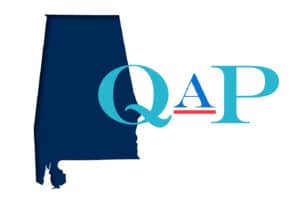Thom Amdur Author Archives

Montana Posts Application for Multifamily Coal Trust Homes Program
Montana Housing has posted the application for its Multifamily Coal Trust Homes Program, which makes available $15 million of Coal Tax Trust Fund dollars to develop affordable rental homes by providing developers with low-interest rate loans. The program is a result of House Bill 16 that was passed during the 2019 legislative session. It’s estimated the money will initially support the development of six new affordable rental properties. As these loans payoff, the money returned will be used to fund the development of additional homes. Multifamily Coal Trust loans can be used for projects such as new construction, acquisition and/or rehabilitation of existing multifamily rental homes, acquisition of land for multifamily rental homes and land trusts for rental and mobile or manufactured homes.

Alabama Posts QAP, HTF Plan & Draft Multifamily Funding Application Forms Package
The Alabama Housing Finance Authority has posted its 2020 HOME Investment Partnerships Program Action Plan, 2020 Housing Credit Qualified Allocation Plan, and 2020 Housing Trust Fund Allocation Plan. Additionally, the DRAFT 2020 Multifamily Funding Application Forms Package (Application Forms Package) is provided for review.

California TCAC Updates Threshold Basis Limits
The TCAC Threshold Basis Limits will be updated and incorporated into the 2020 TCAC Excel application (Attachment 40) in December. The 2020 Operating Expense Minimums will also be published on the TCAC website in December. These two updates are required for tax credit applications submitted for the March 18, 2020 Committee Meeting (deadline January 17, 2020). A notice will be sent when the threshold […]

IRS Issues BEAT Tax Rules
The Internal Revenue Service (IRS) has issued a final regulation on the implementation of the the base erosion and anti-abuse (“BEAT”) tax, which was part of the Tax Cuts and Jobs Act and was designed to prevent the reduction of tax liability by certain large corporate taxpayers through certain payments made to foreign related parties and certain tax credits. The BEAT Tax impacts certain LIHTC, NMTC and Historic Credit investors that are either foreign owned or have significant foreign operations. It has the potential to erode an investor’s benefit from tax credits and losses over time. The final regulations retain the basic approach and structure of the proposed regulations, with certain revisions.

Pennrose Celebrates Opening of Meriden Commons II
Pennrose and The Cloud Company celebrated the grand opening of Meriden Commons II, the second phase of the transit-oriented Meriden Commons development in downtown Meriden, Connecticut. Developed in partnership with the City of Meriden and the Meriden Housing Authority (MHA), the project follows the grand opening of Meriden Commons I in July 2018 and builds upon city efforts to transform the Meriden Green area with mixed-income housing, retail space, and improved accessibility via multimodal transportation.

Federal Reserve Bank of Philadelphia Publishes OZ Case Studies
Lei Ding and Peter Birke of the Federal Reserve Bank of Philadelphia have published a report on Opportunity Zones, “How Are Cities Leveraging Opportunity Zones for Community Development? Philadelphia as a Case Study.” Using Philadelphia as a case study, this study intends to reflect on the selection of Opportunity Zones in major cities and to explore real estate market trends and residential mobility in designated zones in Philadelphia.

NCHFA Appoints J. Adam Abram Chair of Board
The North Carolina Housing Finance Agency has announced that J. Adam Abram has been appointed chair of its Board of Directors by Governor Roy Cooper. Abram is the founder, chair and CEO of James River Group, Ltd. which owns a group of insurance companies that underwrite casualty insurance in 50 states.

Nashville Mayor Proposes To Cut Affordable Housing Fund in Half
Due to the city’s ongoing budget crunch, newly-elected Nashville Mayor John Cooper has proposed to cut funding in half for the Barnes Fund for Affordable Housing. The city faces an estimated budget shortfall of $41.5 million. Mayor Cooper indicated the city would only award $5 million in Barnes Fund Grants this year. The Barnes Fund […]

California Seeks Feedback On TOD Housing Program Update
The California Department of Housing and Community Development (HCD) is seeking feedback on the NOFA and program guidelines for the next round of its Transit-Oriented Development (TOD) program. Thanks to new, voter-approved housing bonds, the TOD program will be releasing a new NOFA in 2020. In preparation, HCD invites you to help shape Round 4 Guidelines by reviewing the Round 3 Guidelines from Fiscal Year 2013-2014 and providing feedback.

WHEDA Director of Lending Resigns
The Wisconsin Housing and Economic Development Authority (WHEDA) has announced the resignation of Sean O’Brien as WHEDA’s Director of Commercial Lending effective January 3, 2020. Sean has accepted a leadership position with a development firm. Between now and January 3, Sean is transitioning projects and providing training. Effective immediately, if you need assistance with WHEDA’s […]

HUD Issues Request for Information on Eliminating Regulatory Barriers to Affordable Housing
The U.S. Department of Housing and Urban Development (HUD) published a Request for Information (RFI) seeking public comment on Federal, State, local, and Tribal laws, regulations, land use requirements, and administrative practices that artificially raise the costs of affordable housing development and contribute to shortages in America’s housing supply.

CalHFA Publishes Term Sheet & Key Program Dates for Mixed-Income Program
The California Housing Finance Agency (CalHFA) recently published a term-sheet for its new Mixed-Income Program (“MIP”), which provides competitive long-term subordinate financing for new construction multifamily housing projects restricting units (tax credit or CalHFA) between 30% and 120% of county Area Median Income (“AMI”).